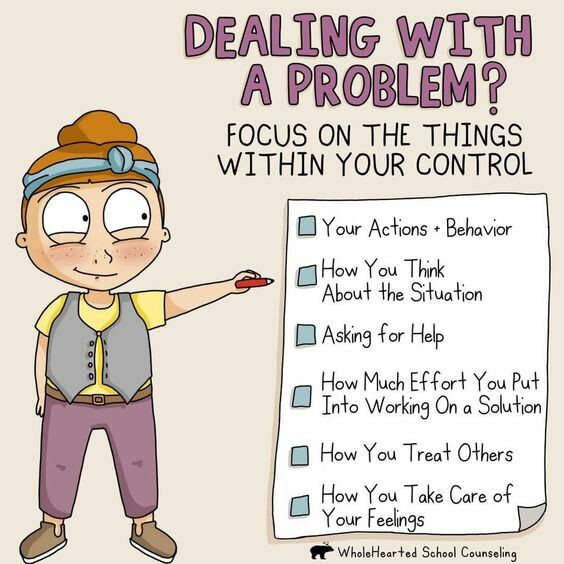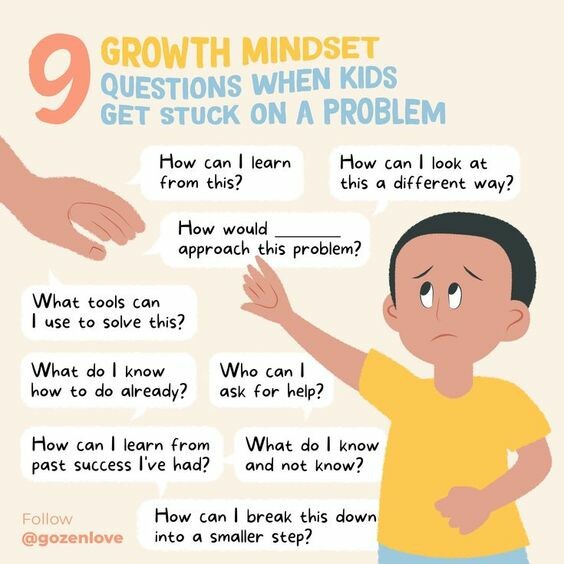How to Teach Problem-Solving Skills to Your Child: A Guide for Every Age

Problem-solving is a vital skill that every child should develop as they grow. The ability to problem-solve effectively can not only enhance their performance in school, but is also a critical life skill that will help them navigate life’s challenges successfully as they reach young adulthood.
Developing effective problem-solving skills at an earlier age can also greatly affect a child’s personality, confidence, and trust in themselves. Children who feel like they can handle challenges on their own tend to be more independent and well-adjusted in their environments, and also optimistic about the opportunities available to them later in life.
In this blog post, we’ll explore the benefits of teaching problem-solving skills to your child and provide practical tips for different age groups - from preschoolers to teenagers.
Why Should You Teach Problem-Solving Skills? An Overview of the Benefits
Teaching your child problem-solving skills offers them the advantage of building resiliency at an earlier age. This can help shape them into independent, self-sufficient individuals as they grow up. Below is a summary of a few key developmental abilities that problem-solving skills can help children practice.
1. Cognitive Development
Problem-solving stimulates a child’s critical thinking skills. Critical thinking involves analyzing, evaluating, and synthesizing information.
The process of problem-solving encourages children to gather information, weigh their options, think about the pros and cons, and make thoughtful decisions. Through this process, they practice becoming self-informed to make their judgments independently. This also helps them foster creative thinking, explore different perspectives and ideas, and develop their own strategies for this process.
2. Confidence Building
Self-confidence is built from the experiences where we demonstrate our capabilities in doing and achieving things.
A child who studied hard and got an A on their test will feel more confident in their studying skills the next time an exam rolls around.
If this child grew up with loving parents, caregivers, and a supportive community, they’ll most likely feel more secure in themselves and have an easier time making new friends and connections as they mature.
The positive experiences that a child has reinforces the confidence in their abilities and self-esteem. By practicing problem solving skills early on, it challenges them to develop a stronger sense of reasoning, responsibility, autonomy, and sense of trust in themselves. All of which can lead to a more optimistic outlook on life, healthier relationships, and a sense of fulfillment and satisfaction.
3. Adaptability
The challenges in life are plenty, and not something that we can protect our children from all of the time. One of the most important tools that we can equip our children with for their future success is for them to be adaptable in the face of adversity.
It’s important for children to know that they are able to keep going during tough times, rather than letting it keep them stuck. Knowing how to effectively problem-solve can help them see adversity in a different perspective and find different solutions for it, while building the resilience for them to keep trying.
4. Decision Making
For every individual, feeling confident in making decisions independently is key to leading a fulfilling life, and is a skill that many children may struggle with. This is heavily related to how well they know themselves, their confidence with their choices, and what they think would bring them closer to their life goals.
“Is nursing or accounting the right profession for me? Should I date this person? Does this religion align with my values? Are these the right people to develop friendships with?”
These are all major life decisions, and choosing what is right for them in their life is crucial for their success. Learning how to problem-solve at a young age can help along in this process by letting them explore their values, flex their sense of judgment, and learn about what is meaningful and right for them.

Tips for Teaching Problem-Solving Skills at Every Age
Pre-school Age
Preschoolers often look to their caregivers as role models, so modelling effective problem-solving is key for them to observe and learn.
Strategies:
1. Set a good example
Demonstrate positive problem-solving behaviour through your daily actions. Instead of becoming frustrated and angry, try to approach problems with calm behaviour and demonstrate logical thinking.
For example:
- If you’re feeling angry, take a deep breath and try to keep calm by verbally reminding yourself, in front of your child, of a way to work through the problem such as:
- “I know I am angry right now, but letting it get the best of me will make me feel worse.”
- “I’m allowed to feel angry, but it’s not good for me to hold onto this feeling. I’m going to take a 10 minute break and try to calm down.”
- “I am so angry right now, but for my own peace of mind I choose to let it go.”
- “Being angry won’t help me think better to solve this problem.”
Your child will be able to observe how you worked through your problem. This also sets a good example for how to work through difficult emotion, redirect your thinking, and move forward from situations.
2. Incorporate play
You can use playtime to help children express and understand their emotions when it comes to problems.
If they’re lashing out, help them understand if they are angry or sad. What caused this? Can they self-regulate after a period of intense emotions, or do they hold onto it?
Here are some prompts to use:
- “Do you like playing with this toy?”
- “What are you feeling right now? Are you frustrated because of [toy]?”
- “I understand you’re feeling [emotion]. Figuring out this toy is tough, but I believe you can do it!”
- “You don’t have to play with this if you don’t want to.”
- “If you need help, please ask me politely and I can for sure give you a hand!”
School-Age
In middle childhood, children start to develop more complex problem-solving skills.
Strategies:
1. Use Family Problems
Involve your child in solving simple family problems, like organizing chores or planning activities. This will help them foster a greater sense of responsibility, learn to accept feedback, and practice their critical thinking and judgment.
Some appropriate topics could include:
- Brushing their teeth
- Putting toys away
- Choosing their own outfits
- Practicing manners - teaching when to say please, thank you, you’re welcome, hellos and goodbyes, sorry, excuse me, waiting their turn, etc.
2. Teach Step-by-Step
Introduce steps to problem solve - state the problem, brainstorm solutions, decide which is best, try it out, and review.
Using homework, for example, try breaking down the problem into steps for them. It could look like this:
1. Identify the Problem:
- Homework is piling up, and your child is feeling overwhelmed! What can we do?
2. Brainstorm Solutions:
- Ask for help from a teacher or classmate?
- Try to manage time better
- Break down homework into smaller, more manageable parts.
3. Make a Decision:
- Create a schedule or a task list
- As a friend for tips
- Choose one subject to start with
4. Give it a Go:
- Follow the schedule
- Try out the study tips
- Complete things in parts
5. Review and Reflect:
- What worked well - schedule or study tips?
- What didn’t work out well - did you procrastinate?
- Adjust and approach the next task differently.

Teenagers
Teenagers are refining their critical thinking and decision-making skills. Children at this age are becoming more independent and learning about themselves in relation to their peers and greater community. They are looking for how they fit into the world, and also how they stand out.
Strategies:
1. Involve them in Simple Chores
Engage teenagers in simple chores so they can practice responsibilities, learn to use logic and judgement, and grow their independence.
Some appropriate topics could include:
- How to make a simple meal (fried eggs, salad)
- Packing their own school lunch
- Help to mow the lawn or shovel snow
- When to do laundry
- How to vacuum
2. Actively Encourage Independence
Encourage and allow them the space to solve problems on their own. If they don’t know what to pack for lunch, give them a few minutes to make a decision independently rather than jumping in and making suggestions for them. If they still need help afterward, try to provide light guidance and not be judgemental about their decisions.
General Strategies for All Ages:
1. Role Play:
Encourage role-playing scenarios where your child can apply problem-solving skills learned. This helps them practice problem-solving in a controlled and fun environment.
Set up a pretend “lost toy” scenario and encourage your child to figure it out. Help them with their thought process, such as where they last saw the toy, and where to look for it first.
2. Skill Teaching:
Break down the problem-solving steps according to their age.
- For 3 - 5 year olds, try to focus on emotions. Teach them to recognize and express their feelings and provide them with an environment that is safe and free of judgment.
- For 5 - 7 year olds, discuss their thoughts and encourage them to consider different perspectives.
- For 7 - 9 year olds, ask them questions that challenge and stimulate their critical thinking, such as “Why do you think this happened” or “What may be a better way to approach this problem?”
3. Encourage Independence:
Support your child in solving their own problems to foster independence and resilience.
If your child is fighting with a friend, guide them towards figuring out a solution themselves. Ask questions such as “Is there anything you could have done differently?” or “If they hurt you, do you think you can forgive them?”
Final Words
Teaching problem-solving skills to your child is an investment in their future success. By adapting the strategies to their age, providing guidance, and encouraging independence, you empower them to navigate life’s challenges with confidence and resilience. Start early, be a positive role model, and watch as your child develops into a capable and confident problem-solver.
To learn more about problem solving, or other practical parenting tips, see our parenting classes:
exclusively written for familycentre.org
by Jessica Tran
